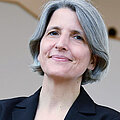It almost never goes according to plan
The IOTA Foundation is the first foundation whose capital consists entirely of a crypto-currency. Dominik Schiener, one of the founders, explains in an interview how to improve our digital age by harnessing features of a traditional German organisational form.
Dominik, a year ago, the IOTA Foundation was recognised by the Berlin Foundation Supervisory Authority as a foundation with legal capacity under civil law. Has everything gone as planned since then?
As with every start-up, almost nothing ever goes according to plan. Especially in a rapidly developing environment like Blockchain and DTL [Digital Linerar Tape]. It is almost impossible to predict what will happen and how the industry will develop. The most important problems regarding the organisation have been solved in the last months, which means that we employ nearly 90 people in more than 15 countries through the foundation to continue working on the protocol and forge partnerships with companies and NGOs.
As a start-up entrepreneur, it was of course completely new territory for us to act with a foundation – often in frustration at having to slow down our fast-moving activities due to various barriers. Over the last few months, we have learned a lot of new things so that we can achieve even more with the IOTA Foundation in the new year.
How do these things fit together – your far-reaching visions for advancing the science and research needed to further develop IOTA technology, and the traditional form of a legal foundation?
Like traditional foundations, the IOTA Foundation is geared to promoting the common good. The IOTA project is based on open-source technology that we want to develop as a standard to enable a machine economy. This goal can only be achieved if the technology reaches production-ready maturity and we have an open and barrier-free ecosystem where companies, start-ups, and developers create together, i.e. develop new innovations based on IOTA.
It was clear to us right from the start that we could only realise the vision of the IOTA project through a foundation. We are not a Silicon Valley start-up focused on maximising profit; we have a strong focus on maximising the impact of our technologies and the ecosystems we build and enable. To promote this ecosystem, we have, for example, established a gGmbH as a subsidiary of the foundation to distribute around 8 million euros in grants to start-ups and open-source developers.
<iframe frameborder="0" height="315" src="https://www.youtube-nocookie.com/embed/wBSC5_nS69s" width="560"></iframe>You have also opted to take the form of a hybrid foundation, i.e. a form of foundation that consumes part of its assets. Was this the right decision?
Definitely. The IOTA Foundation is financed by the founders (David Sønstebø and me), but also by our community, which donated money in 2016 to establish it. In total, almost 5 percent of all IOTA tokens are donated, which was quite a substantial sum when it was set up (about 120 million euros).
The aim of the foundation is to develop the technology behind IOTA through a part of the donated capital and to build and promote an entire ecosystem so that sustainable innovations can be realised. It is precisely for this reason that the Hybrid Foundation is the ideal legal form for us.
What are the biggest risks associated with the crypto-currency for you as a foundation?
The greatest risk for us is certainly that our foundation’s assets are based on a very volatile currency, which also operates in a market where we have very little influence on major developments. This makes overall planning and budgeting more difficult and means that already-coordinated plans must be adapted to the new market situation. This is not a bad thing in itself, but it means that various objectives take longer to achieve than originally planned.
And what are the advantages?
The crypto-currency was used to fund the IOTA Foundation, which enabled us to focus on the further development of the technology and the promotion of our ecosystem. Because of the crypto-currency and IOTA’s far-reaching vision, our foundation has of course also attracted international interest and earned a reputation, making it easier for us to find contacts in companies and expand our entire partner ecosystem.
In your opinion, is a crypto-currency-based organisational form a viable future model for foundations?
The foundation is definitely an essential part of the legitimisation of IOTA as a crypto-currency and sustainable technology. As a foundation model, however, I find it much more exciting to use a charitable foundation to build and promote new innovative ecosystems. Personally, I am firmly convinced we have created a role model in the IOTA Foundation that can be used for similar impact-oriented projects, and which shows that a traditional German organisational form can enable and drive innovation in the new digital age.
You say that anyone who is interested in joining you can contact you. Who are you looking for?
What makes IOTA so unique is our ecosystem. We are not just a foundation, where enthusiastic people can apply for a job position. IOTA has an extensive community of developers and enthusiasts who can work together on projects and even start-ups. As a foundation, we see ourselves mainly as a link to promoting barrier-free innovation by networking and supporting different stakeholders.
IOTA as a project will have an impact in every industry and enable new products and business models. We invite everyone to help us create and develop this ecosystem and realise the full potential of IOTA. If you are interested in a position with the foundation itself, you can visit our website www.iota.org for more information.
What’s next?
We are currently focusing on three very concrete goals: the further development of our Tangle technology, the promotion and growth of our ecosystem, and the legitimacy of IOTA as a currency. With a growing team of nearly 90 people, we see ourselves strongly positioned to realise the potential of Distributed Ledgers (aka Blockchain) through IOTA. For us, this means concretely realising the vision of a “machine economy” that will have a major impact on our everyday lives and industries. Keeping our roots in Germany, we also want to work more closely with the government so that we can test our technology and specific applications in Germany and Europe together with industry partners through various initiatives, so that they can later be launched on the market as a product.

Dr. Annette Kleinbrod
All articles of Dr. Annette KleinbrodMore Information
Related Content
The reform of foundation law is coming
The bill to standardize foundation law will enter into force on 1 July 2023. The legislator has addressed important demands made by the Association of German Foundations and by academia, paving the way for improvements for small and large foundations alike.
Reflecting on 25 years of progress for gender equality – and how far there is to go
Twenty-five years ago, the World Conference on Women in Beijing adopted a Platform for Action that transformed national and international policies almost all over the world, recognizing that women’s rights are human rights. It impacted not millions, but billions of people.
“The SDGs are a powerful common language”
Benjamin Bellegy, Executive Director at the Worldwide Initiatives for Grantmaker Support (WINGS), on his new plans for the global SDG Philanthropy Platform (SDGPP).

